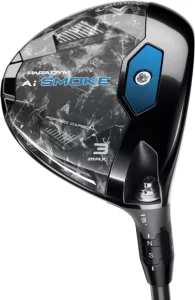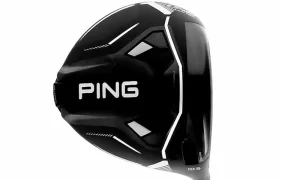Welcome to another edition of the Fully Equipped Mailbag, sponsored by Cleveland/Srixon Golf, an interactive GOLF.com series in which we field your hard-hitting gear questions.
I have a driver and 3-wood with the same hosel adapter. What happens if I put my 3-wood shaft in my driver? – John C., Nevada
Before answering your question, we think adjustable hosel adapters are very underrated in their usefulness. Not only do they make adjusting loft and lie angles incredibly easy, but they also make it a cinch to swap shafts in your woods and driver as long as the clubs are from the same brand in most cases.
Now, to answer your question. Driver shafts and fairway wood shafts in most cases are basically the same thing — except for a few fairway-wood-only exceptions in the marketplace, beyond changes in overall weight. What makes the shafts different is how they’re cut and installed.
Fairway wood shafts are shorter than driver shafts (a 3-wood is usually 43 inches, while drivers average 45 inches) and are trimmed more from the tip-end near the clubhead to the desired length before installation. This trimming makes the shaft stiffer to counteract the heavier weight of a fairway wood head. On the other hand, if a golfer wants a more flexible fairway wood shaft, they can have it trimmed more from the butt end.
If you have a fairway wood and driver of the same brand with the same hosel connector type and you put the fairway wood shaft in the driver, here’s what you can expect:
It will feel lighter: The swing weight will decrease, and the club will feel lighter since it’s an inch or two shorter. Even if the fairway wood shaft is heavier than the driver’s shaft, it will still feel lighter due to the reduced swing weight. To maintain a consistent driver weight, consider adding lead tape or adjusting any weight cartridges your driver has.
You might hit the ball higher: The lighter and shorter shaft may make it easier to get the ball airborne, resulting in a higher ball flight. You may also have a slightly steeper swing, which could increase backspin and elevate the ball even more.
You might hit it farther: Solidly struck shots will travel farther, even if they are hit at a slightly slower clubhead speed. A shorter shaft may help you make better contact more consistently, and it may also give you more confidence to swing harder.
However, there is a chance you won’t hit it as far: Adding an inch to the driver usually results in a gain of 5-10 yards, so cutting the shaft down may decrease clubhead speed and result in less distance overall.
The takeaway is this: A fairway wood shaft in your driver is definitely worth a try if you’re looking for improved control off the tee and/or you want your driver to feel lighter in your hands. If you’re swapping your fairway wood shaft into your driver and you end up liking it, we suggest you pick up a second shaft for your fairway wood and stick with standard specs and length for it. You don’t want to fall down a rabbit hole of cutting down one, two or all your clubs to different lengths. Keep the driver short and the rest of your clubs as they were.
And in case you’re wondering, we’ve tried putting a driver shaft on a fairway wood and have lived to tell the tale. It made the fairway wood feel floppy and hard to control and hit solidly. It was fun at first — but in our test, the fairway wood because laughably hard to hit.











